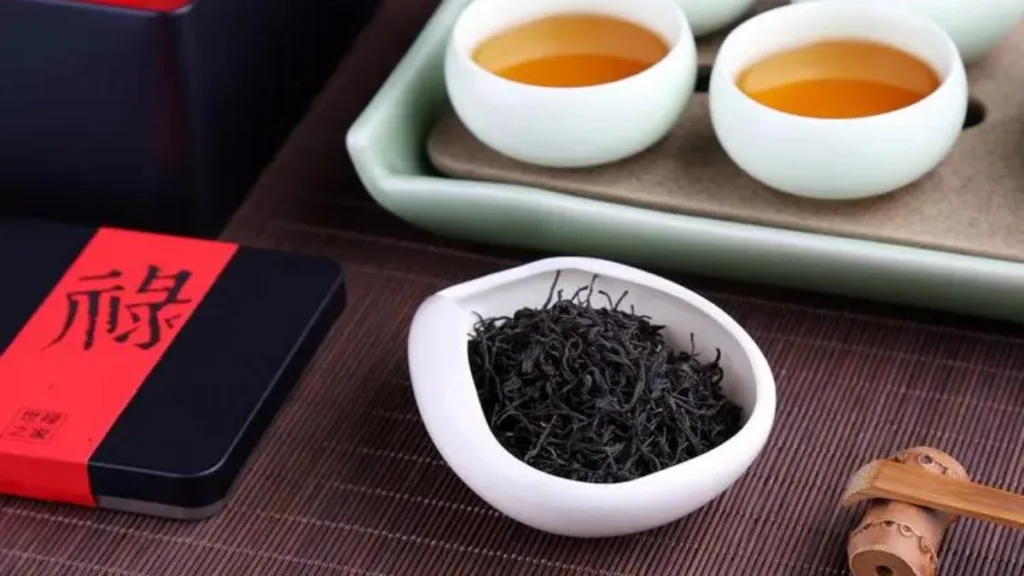The question of how much black tea is too much lacks a definitive answer, as the appropriate amount varies from person to person based on individual comfort levels. However, several guidelines can help navigate the potential limits of black tea consumption:
- Tea Intake vs. Water Intake: It is advisable for tea consumption to be lower than water intake. The general recommendation for daily water intake is around 1700-2000mL. Exceeding this range with tea consumption could be considered excessive.
- Consider Activity Level and Diet: Individuals with high physical activity levels or those with a heavy, oily diet may find it suitable to drink more tea. This can aid in hydration, help alleviate the heaviness of oily foods, promote digestion, and reduce the accumulation of fats in the intestines.
- Special Consideration for Certain Groups: Specific populations, such as infants, young children, pregnant women, breastfeeding women, and individuals with digestive system disorders, should exercise caution. These groups are generally advised to limit tea intake and consider alternatives like warm water or milk.
- Personal Comfort is Key: There is no precise numerical value for how much black tea is too much, as individuals vary in their tolerance levels. Factors such as the amount of tea leaves used, the preferred tea concentration, and personal comfort play crucial roles. It is recommended to gauge appropriateness based on individual comfort.
While the term “tea intoxication” is used, it is essential not to use physical discomfort as the sole boundary. Due to the lack of widespread nutritional education on this matter, recommendations on tea consumption have been ambiguous and less convincing. To shed light on this issue, various sources were consulted:
- Health Canada’s Recommendations: Suggests that individuals under 13 should not exceed 2.5mg/kg daily, and adults should not exceed a total of 400mg per day.
- European Food Safety Authority: Recommends that the safe daily caffeine intake for adults is 400mg, with each intake not exceeding 200mg.
- Estimated Caffeine Intake Based on Average Body Weight: Using the world average body weight, the recommended safe caffeine intake for adults is calculated to be 6mg/kg. For example, a person weighing 70kg should not exceed a maximum daily caffeine intake of 420mg.
- Caffeine Content in Different Teas and Beverages:
- Black tea generally contains 2–5% caffeine. However, the specific type, growing conditions, and production process can influence caffeine levels.
In general, it is advised to consume around 200 grams of black tea daily. Black tea, being fully fermented, retains its original nutritional components and offers benefits such as regulating blood lipids, blood sugar, assisting in weight management, and promoting skin health. However, due to its stimulating nature and higher caffeine content, excessive consumption may irritate the gastric mucosa, particularly in individuals with compromised gastrointestinal function.
It’s crucial to note that black tea, like any beverage, should be enjoyed in moderation. Excessive consumption of black tea, especially for those with poor gastrointestinal function, may lead to discomfort. Individuals experiencing inflammation or discomfort in the throat should avoid excessive black tea consumption.
While black tea offers health benefits, including aiding digestion and promoting bowel movements, it is not recommended for consumption late in the day. The stimulating effects of black tea on the brain and heart may hinder the ability to fall asleep, affecting sleep quality. Additionally, the tannic acid in black tea can bind with iron and calcium, hindering their absorption. Therefore, individuals with anemia or calcium deficiency are advised to limit their black tea intake.
In conclusion, moderation is the key to enjoying the potential health benefits of black tea while avoiding adverse effects. Individuals should be mindful of their own comfort levels, consider their activity levels and dietary habits, and consult with healthcare professionals if they have specific health concerns related to tea consumption. It’s essential to strike a balance between enjoying the rich flavors of black tea and maintaining overall well-being.




